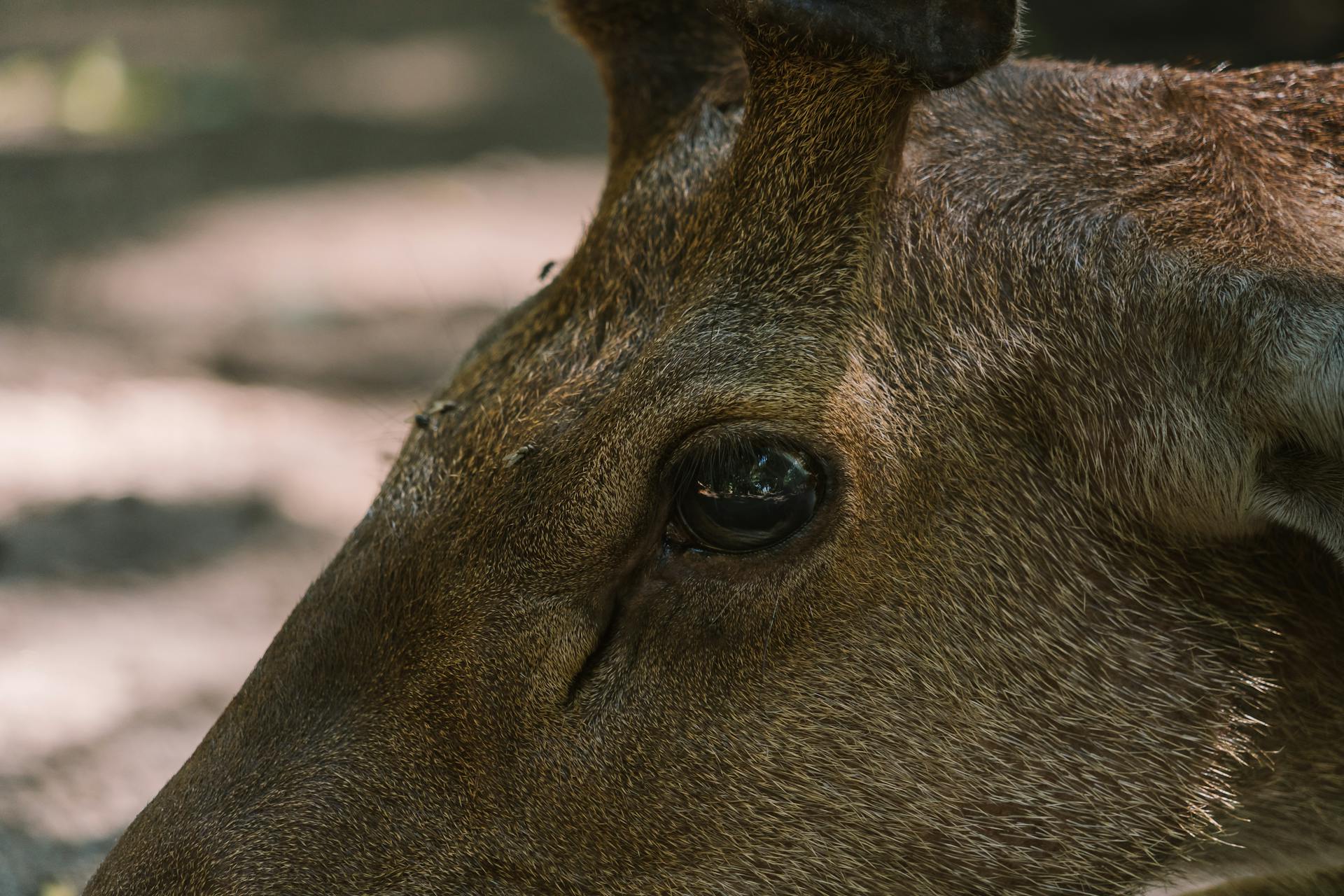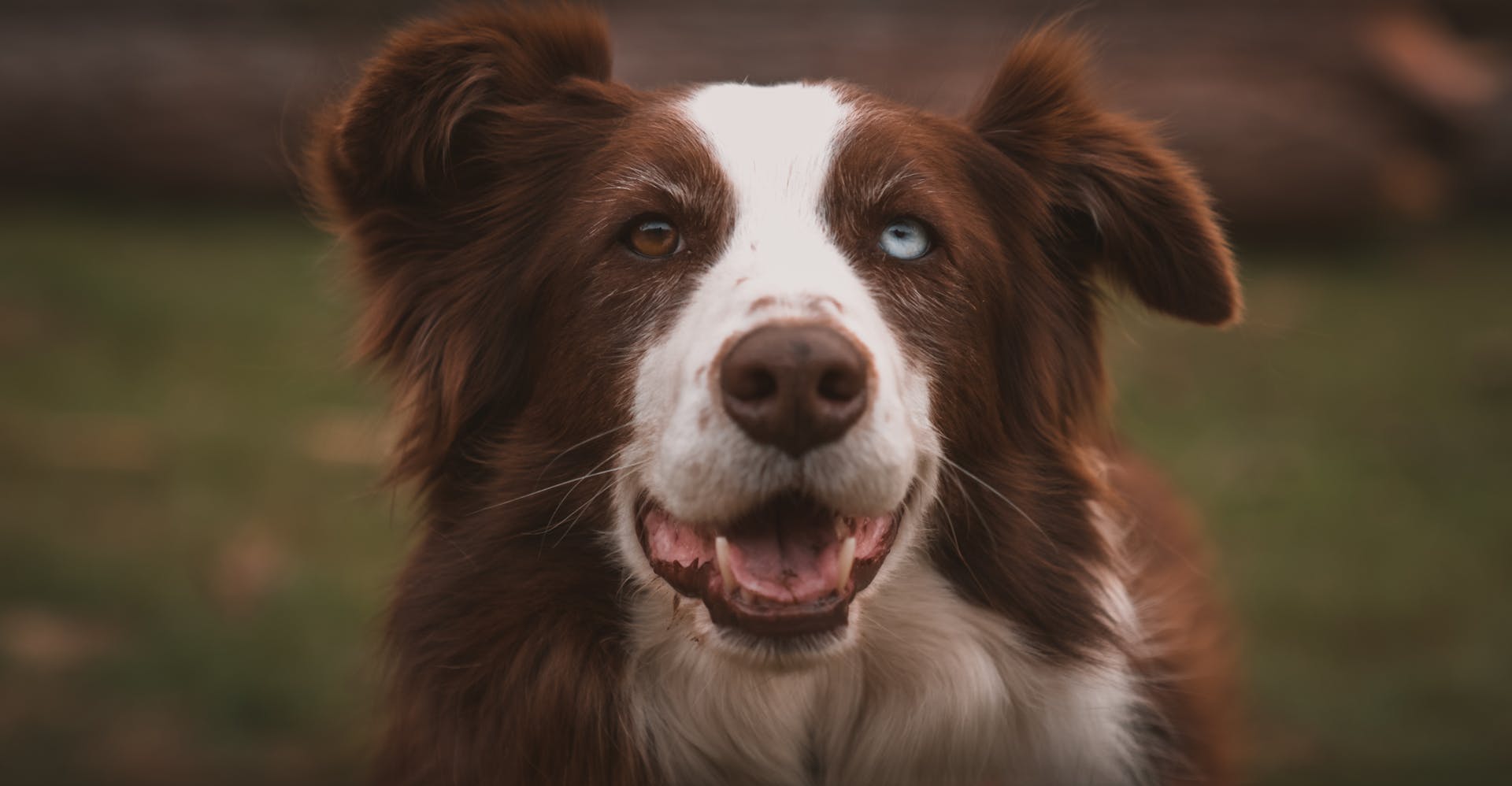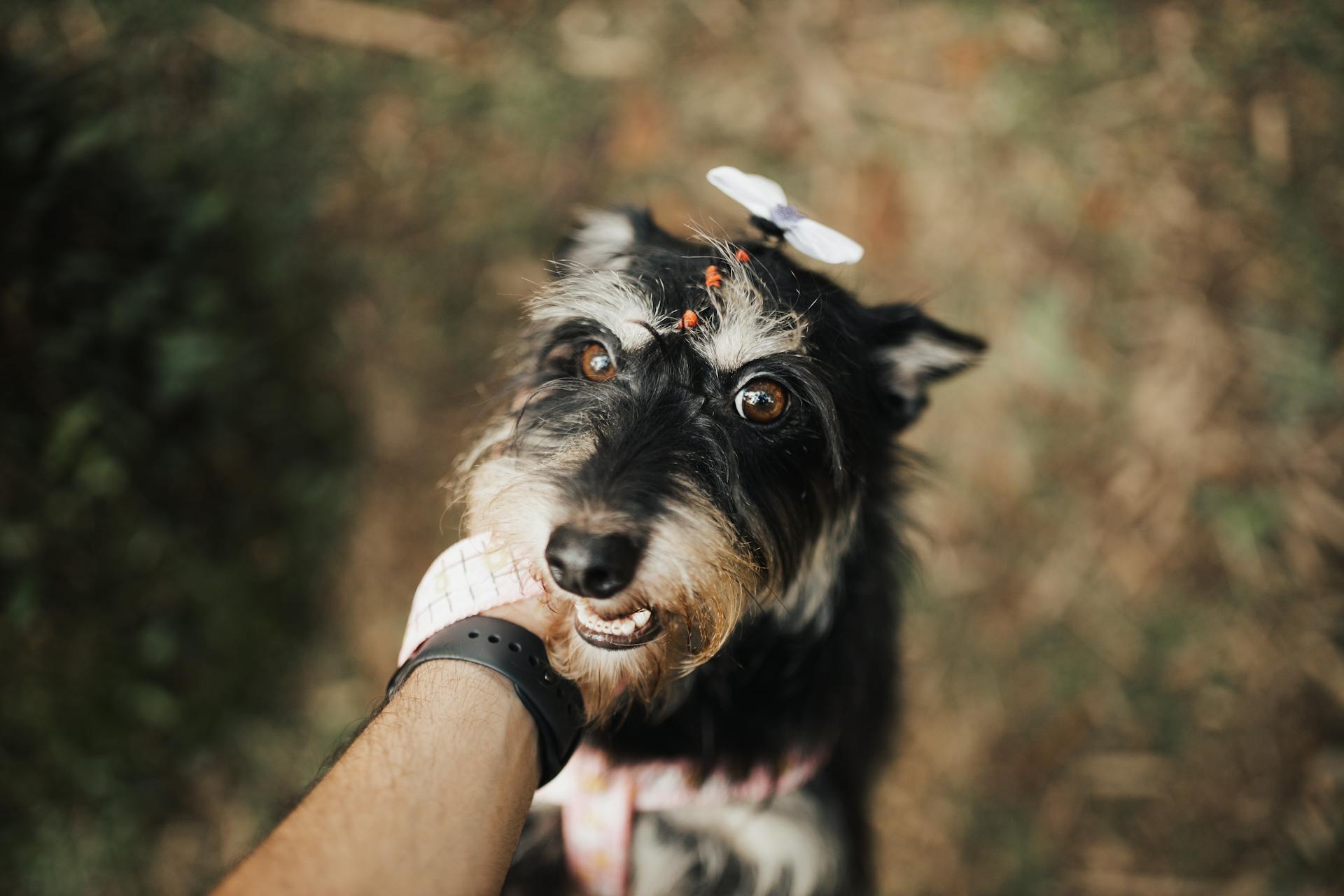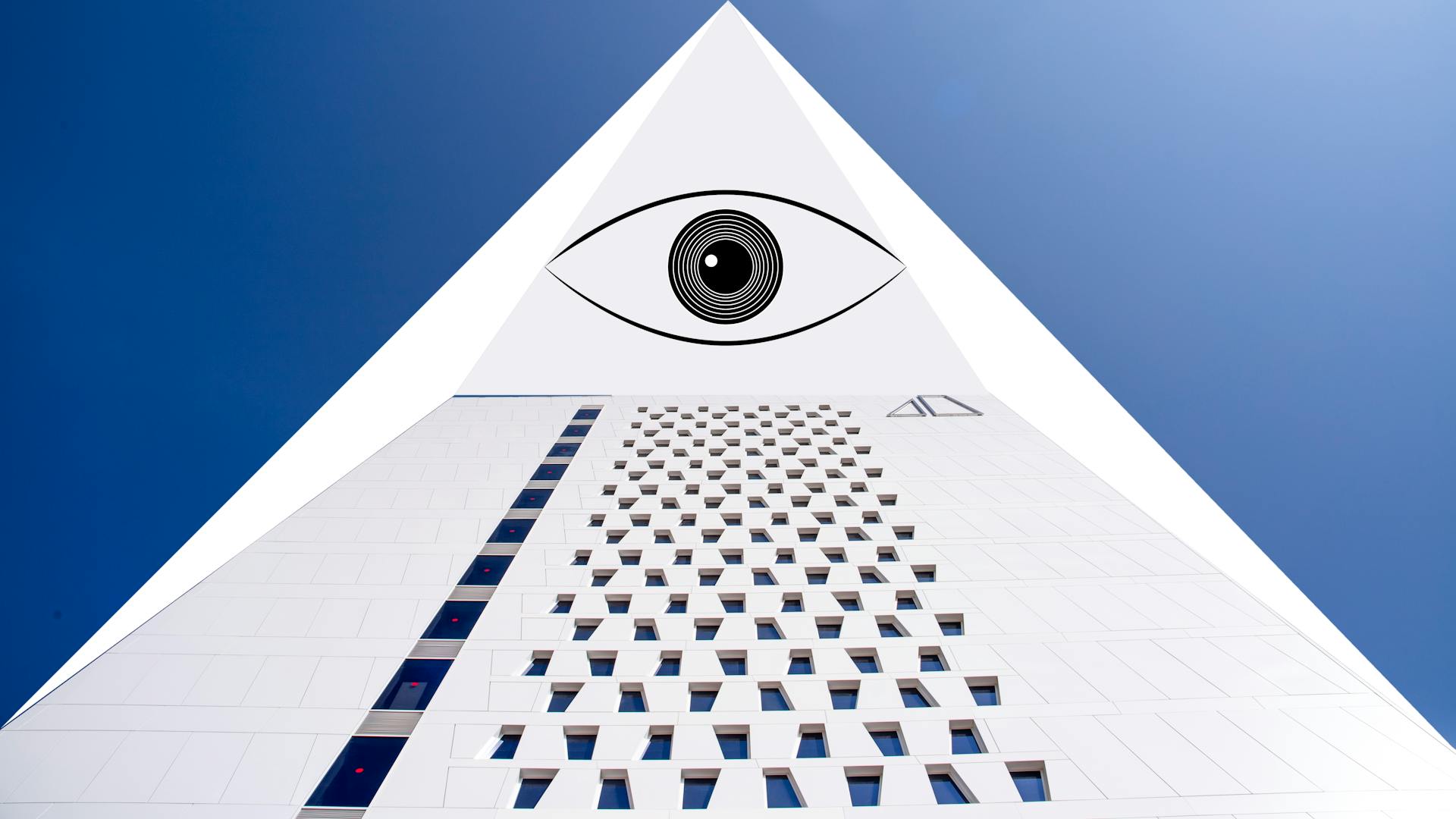
The Havanese breed is known for its beautiful, large eyes, but unfortunately, they can be prone to certain eye problems. One of the most common issues is Progressive Retinal Atrophy (PRA), a genetic disorder that can lead to blindness.
The good news is that responsible breeding practices have helped reduce the incidence of PRA in Havanese dogs. This is thanks to genetic testing and selective breeding to identify carriers of the PRA gene.
With proper care and attention, many Havanese dogs can live long, healthy lives with minimal eye problems. Regular veterinary check-ups can help identify any issues early on, and prompt treatment can prevent serious complications.
Take a look at this: Havanese Skin Issues
Havanese Eye Problems
Havanese dogs are prone to several eye problems that can affect their quality of life. Some of these conditions can cause blindness if not treated right away.
Cataracts are a common cause of blindness in older Havanese, and they can be treated with surgery to restore sight. Many dogs adjust well to losing their vision and get along just fine.
Distichiasis is a painful condition caused by extra hairs that grow inside the eyelid and rub on the surface of the eye. If left untreated, it can cause corneal ulcers and chronic eye pain.
Some Havanese dogs may develop structural defects in their eyeballs, which can cause serious vision problems. These defects can be detected by a vet using special tests.
Persistent Pupillary Membrane is a condition where small strands of tissue remain attached to the iris, which can cause problems in some cases. Fortunately, these tissue bits usually don't hurt or impede vision.
Progressive Retinal Atrophy (PRA) is an inherited disease that causes the eyes to go blind, and it's more common in Havanese dogs than in other breeds. PRA is not painful but is not curable, and early symptoms can begin around three to five years of age.
Common Issues
Heritable cataract is a common issue in Havanese dogs, typically showing up between 3 to 4 years old, and in some cases, not until 7 years or older.
It's essential to get your Havanese tested for heritable cataract before breeding them, as this condition can cause partial or complete blindness.
Cataracts in older Havanese can be treated with surgery to remove the cloudy lenses and restore sight.
Distichiasis, a painful condition caused by extra hairs growing inside the eyelid, is a common inherited disease in Havanese dogs and can cause corneal ulcers and chronic eye pain if left untreated.
Your Havanese is more likely to develop Persistent Pupillary Membrane, a condition where small strands of tissue remain attached to the iris, which can cause problems if left untreated.
Progressive Retinal Atrophy (PRA), an inherited disease that causes blindness, affects Havanese dogs and can be detected with a genetic test, with symptoms typically starting between 3 to 5 years old.
What to Watch
Many diseases cause dogs to have a characteristic combination of symptoms, which together can be a clear signal that your Havanese needs help.

Any abnormal symptom could be a sign of serious disease, or it could just be a minor or temporary problem. The important thing is to be able to tell when to seek veterinary help, and how urgently.
Cataracts are a common cause of blindness in older Havanese, with the lenses of their eyes becoming more opaque and cloudy over time.
Distichiasis is a painful condition caused by extra hairs that grow inside of the eyelid and rub on the surface of the eye, often leading to corneal ulcers and chronic eye pain.
Havanese are more likely to develop Persistent Pupillary Membrane, a condition where small strands of tissue remain attached to the iris, which can occasionally cause problems.
Progressive Retinal Atrophy (PRA) is an inherited disease that causes the eyes to be genetically programmed to go blind, with symptoms such as night blindness or dilated pupils beginning around three to five years of age.
If you notice any of these symptoms or conditions in your Havanese, it's essential to seek veterinary help right away to determine the best course of action.
Cherry Eyes
Cherry eyes are a common issue in Havanese dogs, caused by the gland of the third eyelid prolapsing.
You'll know your dog has cherry eyes if you spot a swollen mass sticking out from behind the third eyelid at the inner edge of the eye.
Prompt treatment is essential to ensure limited damage is done to the gland and to make your dog comfortable.
A surgical replacement of the third eyelid gland will be necessary for treatment in most cases.
If you notice any swelling or a mass sticking out from behind the third eyelid, take your Havanese to the vet right away.
Having cherry eye in one eye can easily make the other eye infected as well.
The treatment for cherry eyes is usually quite simple, involving the vet moving the gland backward to where it should be and letting the eyes heal naturally or through medicine.
Curious to learn more? Check out: Cherry Eye English Bulldog
Excessive Tearing Disorder
Excessive Tearing Disorder is a common issue in Havanese dogs.
This condition is also known as "poodle eye", which can be caused by a dusty environment.
You may notice a stain in your Havanese's tears, which can be more obvious in white or light-colored dogs.
For dark-colored Havanese, the stain may not be as noticeable, but you may still notice an unusual amount of tearing.
Exposure to smoking can also contribute to excessive tearing in Havanese dogs.
Hair in the eye can also cause this condition, which is often seen in dogs with long hair.
Bacteria or allergies can also be a factor in poodle eye, making it essential to keep your Havanese's environment clean and free from allergens.
You might like: Havanese and Poodle Mix Dog
Health Concerns
Havanese eye problems can be a serious concern for owners.
Proptosis, a condition where the eye bulges out of the orbit, is a common issue in Havanese dogs. This can be caused by a variety of factors, including tumors, abscesses, or trauma.
Cataracts are a leading cause of blindness in Havanese dogs, affecting over 50% of the breed by age 10.
Progressive retinal atrophy (PRA) is a genetic condition that can lead to blindness in Havanese dogs. It's characterized by the degeneration of the retina, which can cause vision loss and eventual blindness.
Havanese dogs with PRA often exhibit night blindness first, which can be a warning sign for owners.
Symptoms and Treatment
Cataracts can cause blindness in older Havanese, with symptoms including cloudy lenses instead of clear ones.
Regular check-ups with your vet can help catch cataracts early and prevent blindness.
Distichiasis, a condition caused by extra hairs inside the eyelid, can cause corneal ulcers and chronic eye pain if left untreated.
Treatment options are available for distichiasis, and the prognosis is good once the hairs have been permanently removed.
Persistent Pupillary Membrane, a condition where tissue bits remain attached to the iris, usually doesn't hurt or impede vision.
However, in some cases, these tissue bits can cause problems, so it's essential to monitor your Havanese's eyes regularly.
Progressive Retinal Atrophy (PRA) is an inherited disease that can cause blindness, with symptoms like night blindness or dilated pupils starting around three to five years of age.
Curing Poddle Eye, also known as excessive tearing, requires identifying the underlying cause, such as a dusty environment or bacterial infection, and removing it.
Heritable cataract, cherry eyes, and excessive tearing are common eye disorders in Havanese, and regular check-ups can help diagnose them early.
If your Havanese develops a cataract, it's essential to catch it early to avoid blindness, and surgery may be an option to restore sight.
In the case of cherry eyes, early treatment is key to fixing the issue quickly and preventing further complications.
Readers also liked: Boston Terrier Cherry Eye
Interesting Facts
Havanese dogs are prone to eye problems, particularly cataracts and progressive retinal atrophy, due to their genetic makeup.
The Havanese breed has a high incidence of cataracts, with some research suggesting that up to 20% of Havanese dogs are affected by this condition by the age of 10.
Cataracts can cause vision loss and blindness if left untreated, making regular eye exams essential for Havanese owners.
Progressive retinal atrophy is another common eye problem in Havanese dogs, which can lead to vision loss and eventually blindness.
Havanese dogs with progressive retinal atrophy may exhibit night blindness, difficulty adjusting to changes in lighting, and a general decline in visual acuity.
The Havanese breed's small size and delicate features make them more susceptible to eye injuries and infections, which can be serious and even vision-threatening if not treated promptly.
Sources
- https://www.arcanumvetservice.com/client-resources/breed-info/havanese/
- https://www.dogster.com/dog-health-care/havanese-health-issues
- https://www.streetdirectory.com/travel_guide/194368/pets/havanese_health_problems_what_to_look_for.html
- https://tricountyanimalclinic.com/client-resources/breed-info/havanese/
- https://erashavanese.com/havanese-eye-problems/
Featured Images: pexels.com


